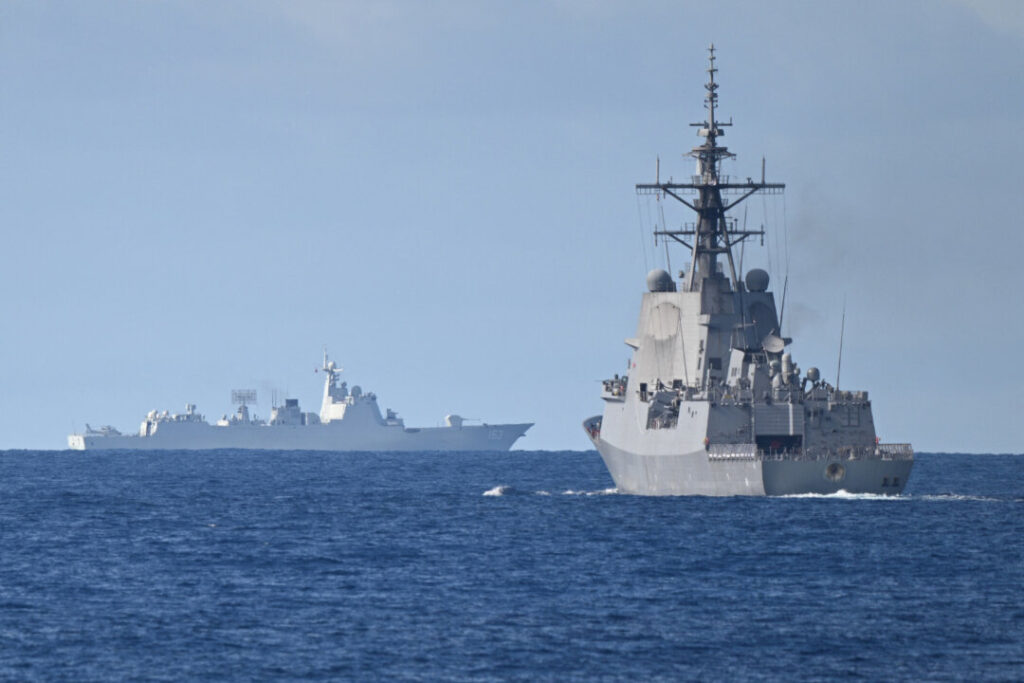
A Chinese PLA Navy ship (background L) is seen while the Royal Australian Navy destroyer HMAS Brisbane (R) takes part in a maritime cooperative activity between the Philippines, Australia and Canadian navies near Scarborough Shoal in disputed waters of the South China Sea on September 3, 2025. (Photo by Ted ALJIBE / AFP) (Photo by TED ALJIBE/AFP via Getty Images)
The head of the Australian Security Intelligence Organisation (ASIO), Mike Burgess, has issued a stark warning regarding foreign interference, emphasizing that Australia remains vigilant against potential threats from various nations, including but not limited to China. In a recent address, Burgess highlighted the capability and willingness of more than three nations to engage in “lethal targeting” within Australia, marking a significant concern for national security.
While Burgess refrained from directly naming China during his formal remarks, he later clarified his position when questioned by journalists. He suggested that his previous statements could indeed pertain to actions taken by China, stating, “How do you know I wasn’t talking about things China did in my remarks today?” This response underscores the complexity of international relations and the nuances of intelligence assessments.
Concerns Over Espionage and Intellectual Property Theft
Burgess also addressed the broader implications of espionage, noting that while nations may engage in intelligence gathering, there are lines that should not be crossed. He remarked, “We all spy on each other, but we don’t conduct wholesale intellectual property theft. We don’t actually interfere in political systems and we don’t undertake high-harm activity.” This comment highlights the ethical boundaries that he believes should govern international conduct, especially among major powers.
The ASIO chief’s remarks come at a time when Australia is increasingly aware of the risks posed by foreign interference. The government has taken steps to bolster its national security framework, ensuring that agencies are equipped to deal with these challenges. This includes enhancing cooperation with international partners to counteract the influence of foreign actors.
International Context and Response
Australia’s stance reflects a growing trend among Western nations to scrutinize the actions of foreign governments, particularly in the context of security and economic interests. The increasing focus on foreign interference has led to heightened tensions between Australia and China, which has previously been a significant trading partner. As countries navigate this complex landscape, the balance between economic engagement and national security remains a critical concern.
The ASIO’s warnings serve as a reminder of the importance of vigilance in an era where the lines between competition and conflict are often blurred. As Burgess articulated, the implications of foreign interference extend beyond mere espionage, potentially impacting the very fabric of political and economic systems.
The Australian government continues to assess its policies and strategies to safeguard its national interests, aiming to protect its democratic processes from external influence. With the ASIO’s insights, the public and policymakers alike are urged to remain informed and proactive in addressing these pressing security issues.







